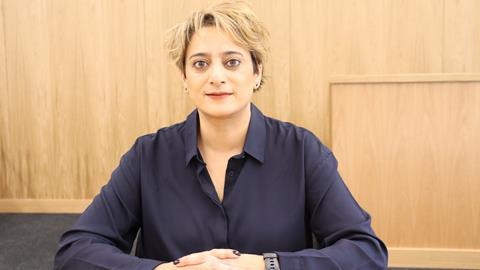Director of the University of East London’s Legal Advice Centre, senior lecturer in law and senior solicitor at Dexter Henry Solicitors
I was born and grew up in south London where I attended my local state school. My father worked for London Underground and my mother as a seamstress at home. My siblings and I were the first generation to go to university.
I was fortunate to be trained at one of the country’s leading human rights firms, Christian Fisher. Mike Fisher became my mentor. He had acted for one of the Guildford Four as well as in other miscarriage of justice cases. I was lucky to work for and with him for almost 20 years.
As a Muslim growing up in the 1980s I was well aware of the injustices suffered by Irish, black and Muslim communities. I wanted to do something to help vulnerable people. Being a criminal lawyer at Christian Fisher gave me this opportunity.
While studying for my law degree, I worked for a number of criminal legal aid firms as an outdoor clerk. I would attend conferences with the client and barrister on behalf of the solicitor, or Crown court trials, to take notes of proceedings. I loved watching the interactions between the parties and the changes in language and behaviour depending on who they communicated with. Mostly I loved getting to know clients, their backgrounds and the journeys they had taken in life.
At university I was selected to be part of a fellowship programme to spend a summer in New York working with a public defender service in Harlem. This reinforced my wish to specialise as a criminal lawyer.
As a trainee I had experience in a number of different areas. These included civil litigation, immigration and asylum, employment, inquests, judicial review and criminal law. Human rights was in the DNA of the firm. I fell in love with criminal law and was over the moon when Mike offered me a job as a criminal solicitor.
I became a duty solicitor for police stations and magistrates’ courts. Around this time there were big changes affecting the criminal justice system and legal aid cuts were starting to affect the way firms could continue to practise in criminal defence.
'It is easy to become disillusioned when you see injustices occur, mainly due to a lack of investment in the criminal justice system and cuts to legal aid'
Michael Fisher decided to set up a new boutique criminal practice and asked me to go with him. We moved to new offices in Victoria. Our team included criminal solicitors, clerks, paralegals and police station representatives. It was exciting and very scary but we were completely committed to the work. Unfortunately, legal aid cuts were affecting law firms around the country. Criminal firms were shutting down or merging with bigger firms as the only way they could afford to keep open. Eventually the same happened with our firm. This changed the ethos of the firm and the way we were able to represent our clients.
I have continued to practise as a criminal solicitor consultant, but it has changed enormously since I began. It is easy to become disillusioned when you see injustices occur, mainly due to a lack of investment in the criminal justice system and cuts to legal aid. As a criminal defence solicitor and keyworker, I continued to work through the pandemic, I had clients (many young) in custody awaiting trials that had been put off for over 12 months.
The pandemic gave me pause to reflect a bit more in relation to my life, my work, my role. It also gave me time to listen more, to the different problems affecting people every day – parents, young people, the elderly, the lack of support in relation to mental health. This chimed with the conversations I have always had with clients and their families. The role of director of the University of East London’s Legal Advice Centre was the perfect opportunity for me to channel my energies, experience and expertise.
My biggest mentor has been Michael Fisher. He had a brilliant mind, was hard-working, thorough and always available to talk. Early in my career, I was taken under the wings of two formidable women – Maureen Boyle and Stella Collis – police station representatives who were also active in the local community. Outside the law but connected to it as a mother and lawyer, Doreen Lawrence, whose determination to get justice for her son and do all she can not only to improve the lives of young people but also to make society more just, is truly inspirational.
I can’t, hand on heart, say the future for criminal lawyers is a bright one. The continued cutbacks in legal aid have meant that many good firms are unable to employ criminal solicitors, so they are taken instead on a consultancy basis. With the huge debt built up during studies it is difficult for a newly qualified criminal solicitor in London to make ends meet. It’s almost impossible as a consultant.
I am a law lecturer and I do though encourage my students to pursue a career in criminal defence because it is incredibly exciting. There is an urgent need for new, committed, enthusiastic lawyers to join us. It is an area of law that is so rewarding. However, I also advise them to enter the profession with open eyes and realistic expectations. It’s an advantage to become multi-disciplined. Michael Fisher specialised in criminal and civil litigation, but enjoyed criminal practise more. A bit like me.
































No comments yet